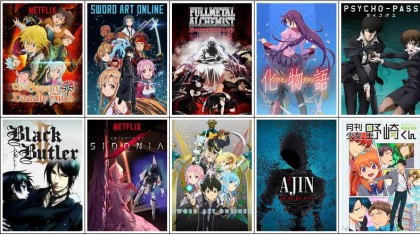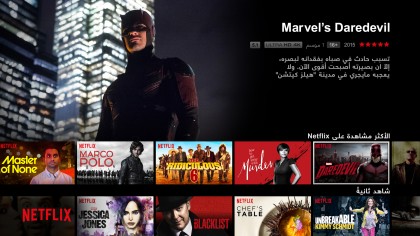How someone in Japan could be deciding your Netflix recommendations
British humour is actually quite popular outside of the UK

In January, Netflix made its most aggressive expansion so far, bringing its streaming service to 130 new countries. As the company put it at the time, Netflix was "now available around the world".
This came with its own challenges and opportunities, one of which was recommendations: how can you leverage viewing data and make it work for recommendations on a global scale?
Netflix has now revealed a bit more about the process, and how your recommendations are being influenced by people around the world who share a similar taste in movies and TV - and vice versa.
Since the very end of 2015, Netflix has been using worldwide viewing habits to inform your recommendations. Put simply, Netflix is using global data to identify specific communities based around tastes.
Say you have a particular fondness for Japanese anime, which is a diverse genre. Netflix is now able to look at trends around the world to base your recommendations on, rather than just looking at Japanese trends, or simply favourites shared by other people in your country.
By leveraging global data it can identify specific communities it previously struggled to get to grips with and therefore recommend content that better suits your particular tastes within that genre, rather than just chucking a load of anime titles your way.

There are already examples of where this has worked. Netflix says it has recognised a taste for British humour outside of the UK, which has allowed the service to start recommending shows like the British version of The Office to some users, instead of the American one.
Sign up for breaking news, reviews, opinion, top tech deals, and more.
"Now the algorithms are global, we hope to be able to improve recommendations much faster than before," Carlos Gomez-Uribe, Netflix VP of product innovation, told us.
On the other hand...
However, there will be times when these communities will be mostly localised to one country, and Netflix says its algorithms can decide whether a community's tastes are better reflected by a local community or a global one. "The results are a mix between global and local," said Gomez-Uribe.
Take this hypothetical example: You're the first person in your country to use Netflix, so your recommendations are pulled from global data. Jump forward two years and millions of people in your country are now using the service, where it has become apparent that your specific country shares your passion for 'Dutch Family Adventure' films. Few people around the world care for this very specific genre, so Netflix's algorithm will recognise this and instead draw recommendations based on the local preferences in this genre rather than global ones.
It will also no doubt help inform Netflix's future 'Originals'. Gomez-Uribe told us that the data revealed discovered Netflix crime thriller Narcos, much of which is in Spanish with subtitles, has found a very global audience via the the new algorithms. He hinted that this sort of information could help Netflix decide target areas for its original programming in the future.

But there are still barriers, the biggest of which is region-specific content. In a blog post published today, Netflix said its ultimate goal is "to let members around the world enjoy all our content through global licensing". Netflix says its algorithms are taking these inconsistencies into account, but it admits the inconsistent availability is an interference.
Inconsistent availability interferes with Netflix's recommendations, but it says it does take the uneven availability into account.
There are other challenges to deal with, but it's interesting to see how Netflix is trying to hone its recommendations. Netflix is learning how stories travel around the world, and how it can use this information to keep people streaming more content. You can read the full blog here, which goes through some of the other nitty gritty details regarding Netflix's challenges in becoming a global service.

Hugh Langley is the ex-News Editor of TechRadar. He had written for many magazines and websites including Business Insider, The Telegraph, IGN, Gizmodo, Entrepreneur Magazine, WIRED (UK), TrustedReviews, Business Insider Australia, Business Insider India, Business Insider Singapore, Wareable, The Ambient and more.
Hugh is now a correspondent at Business Insider covering Google and Alphabet, and has the unfortunate distinction of accidentally linking the TechRadar homepage to a rival publication.